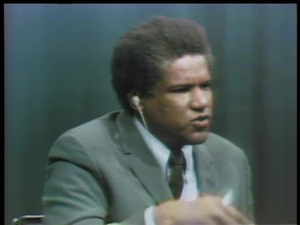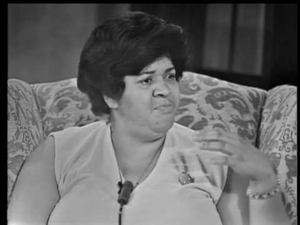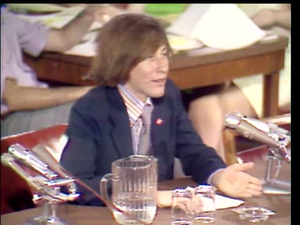National Educational Television and Radio Center Pickard, Larry Rigsby, Gordon Pels, Pat Krosney, Herbert Evers, Charles King, Martin Luther, Jr Carter, Hodding Patterson, Eugene Farley, James A Heffner, Richard D Sparkman, John Moore, Margaret Jones Dudley, Edward R Johnson, LeRoy Hamer, Fanny Lou Wood, Jim Walden, A. T Winters, Bill Allen, Ivan, Jr
Description
Episode Number: 5In 1944, when the "whites only" primaries in the South were abolished, American Negroes began to vote in large numbers for the first time. Now [1964], two decades later, the Negro vote is becoming an important element in local, state, and national elections. The questions that arise in this 1964 Presidential election year are: How will the Negro vote? Will he go Democratic or Republican? What does the Negro vote want? Negro voting influence, however, varies with the regions of the country. Three large areas represent three stages of Negro development and voting power - the Deep South, the North, and the Border States. In Mississippi, Negroes still have difficulty in exercising their right to vote. In the North, the Negro vote is bringing about changes in the political structure. In the Border States and parts of the South, the Negroes have the rights of those in the North, but within the racial conditions of the South. In Mississippi, forty-two percent of the population is Negro, yet only six percent of the Negro population votes. In the North, Negroes are found to be falling into a pattern common to ethnic groups; they tend to vote Democratic because they think that party is more responsive to their needs. John Kennedy got more than seventy percent of the Negro vote in the 1960 election and Lyndon Johnson is expected to do as well or better. The Democrats' hold on the Negro vote was solidified in the 1948 national convention when...
Video
Motion Pictures
Krosney, Herbert
Rights status not evaluated.Contact host institution for more information.












